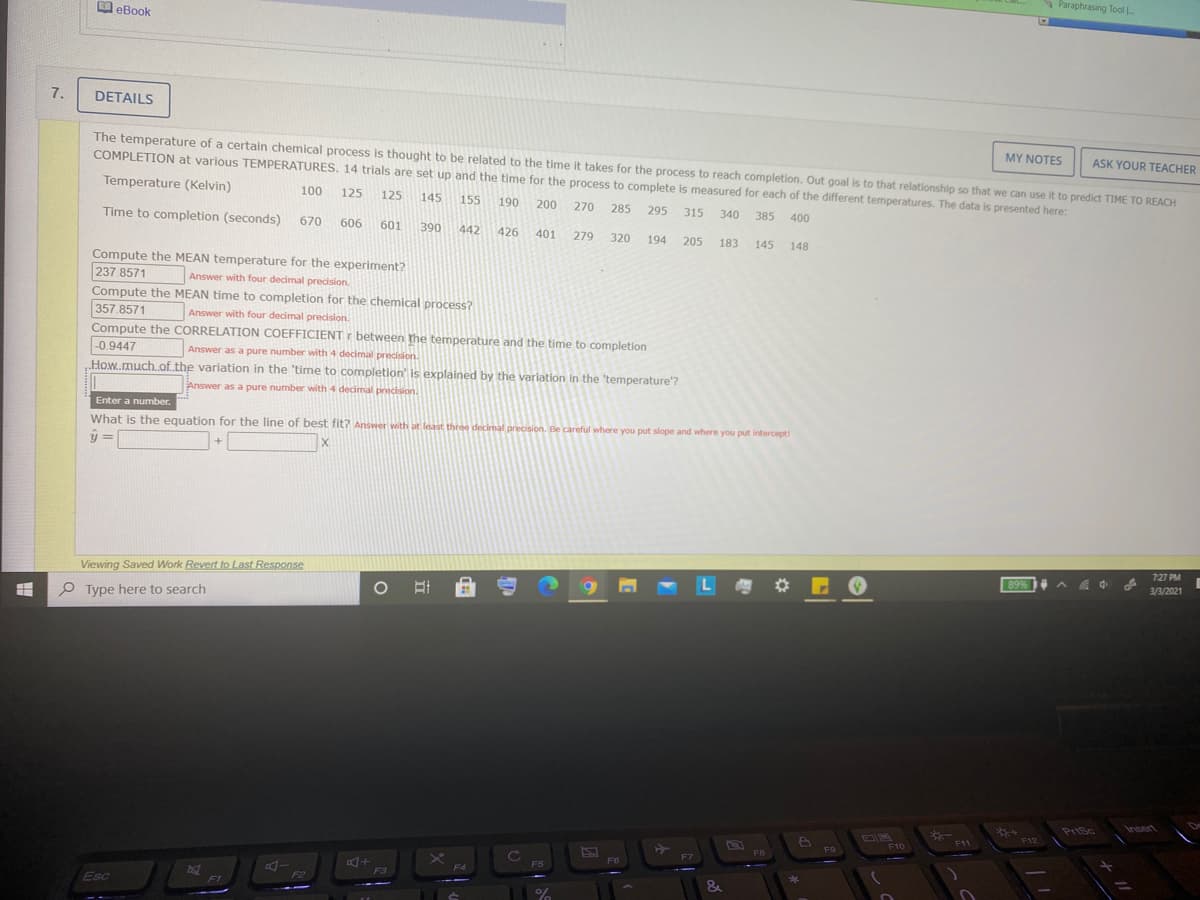MY NOTES ASK YOUR TEACHEI The temperature of a certain chemical process is thought to be related to the time it takes for the process to reach completion. Out goal is to that relationship so that we can use it to predict TIME TO REACH COMPLETION at various TEMPERATURES. 14 trials are set up and the time for the process to complete is measured for each of the different temperatures. The data is presented here: Temperature (Kelvin) 100 125 125 145 155 190 200 270 285 295 315 340 385 400 Time to completion (seconds) 670 606 601 390 442 426 401 279 320 194 205 183 145 148 Compute the MEAN temperature for the experiment? 237 8571 Compute the MEAN time to completion for the chemical process? Answer with four decimal precision. 357.8571 Answer with four decimal precision. Compute the CORRELATION COEFFICIENT r between the temperature and the time to completion -0.9447 Answer as a pure number with 4 decimal precision How.much.of.the variation in the 'time to completion' is explained by the variation in the 'temperature'? Answer as a pure number with 4 decimal precision. Enter a number. What is the equation for the line of best fit? Answer with at least three decinal precision. Be careful where you put slope and where you put intercept y = %3D
Unitary Method
The word “unitary” comes from the word “unit”, which means a single and complete entity. In this method, we find the value of a unit product from the given number of products, and then we solve for the other number of products.
Speed, Time, and Distance
Imagine you and 3 of your friends are planning to go to the playground at 6 in the evening. Your house is one mile away from the playground and one of your friends named Jim must start at 5 pm to reach the playground by walk. The other two friends are 3 miles away.
Profit and Loss
The amount earned or lost on the sale of one or more items is referred to as the profit or loss on that item.
Units and Measurements
Measurements and comparisons are the foundation of science and engineering. We, therefore, need rules that tell us how things are measured and compared. For these measurements and comparisons, we perform certain experiments, and we will need the experiments to set up the devices.

Trending now
This is a popular solution!
Step by step
Solved in 5 steps with 1 images









